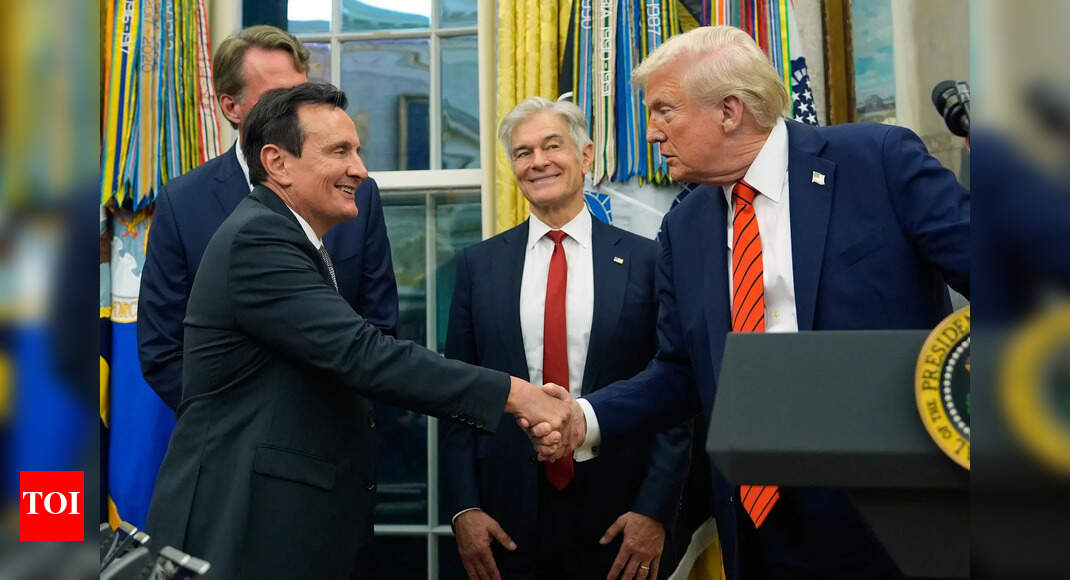
US President Donald Trump on Friday announced reaching a deal with AstraZeneca, which would lower the cost of some prescription drugs for millions of Americans.The agreement will see the company sell certain medicines at reduced prices to the government’s Medicaid health plan in exchange for tariff relief. This follows a similar arrangement made with Pfizer last week.The White House is using these agreements as a model to pursue its broader goal of cutting the price of prescription medicines in the United States. In July, Trump sent letters to 17 major pharmaceutical companies, urging them to bring down their prices. So far, Pfizer and AstraZeneca are the first to finalise such deals with the administration.AstraZeneca chief executive Pascal Soriot said at an Oval Office event that the company will offer some of its drugs at discounts of up to 80% through a new TrumpRx website expected to launch next year. He added that the company would receive a three-year tariff exemption “to localize the remainder of our products.”US patients currently pay some of the highest drug prices in the world, nearly three times more than patients in other developed countries. Trump has been pressuring companies to match international prices or face steep tariffs.Negotiations with the industry had previously broken down earlier this year. But after striking a deal with Pfizer, the administration increased pressure by threatening tariffs of up to 100% to push other companies to follow suit, according to lobbyists and executives.More than 70 million Americans are enrolled in Medicaid, which serves low-income groups. However, most government spending on medicines comes from Medicare, which covers people over 65 and those with disabilities. Medicare spent $216 billion on drugs in 2021, compared to Medicaid’s $80 billion.Experts say the impact of the AstraZeneca deal on Medicaid spending will likely be limited. “If you look at AstraZeneca’s portfolio, I don’t think there are a bunch of drugs that exist where that’s going to involve them giving a very big discount to Medicaid,” said Craig Garthwaite, a professor at Northwestern University’s Kellogg School of Management, as cited by Reuters.Rena Conti, an associate professor at Boston University, added that while the deal may help AstraZeneca avoid tariffs, it will not move the needle on US rising health insurance premiums and out-of-pocket drug costs.Rena Conti, an associate professor at Boston University, said the deal may protect AstraZeneca from tariffs but is unlikely to make any real difference to rising health insurance premiums or out-of-pocket drug costs in the US.








